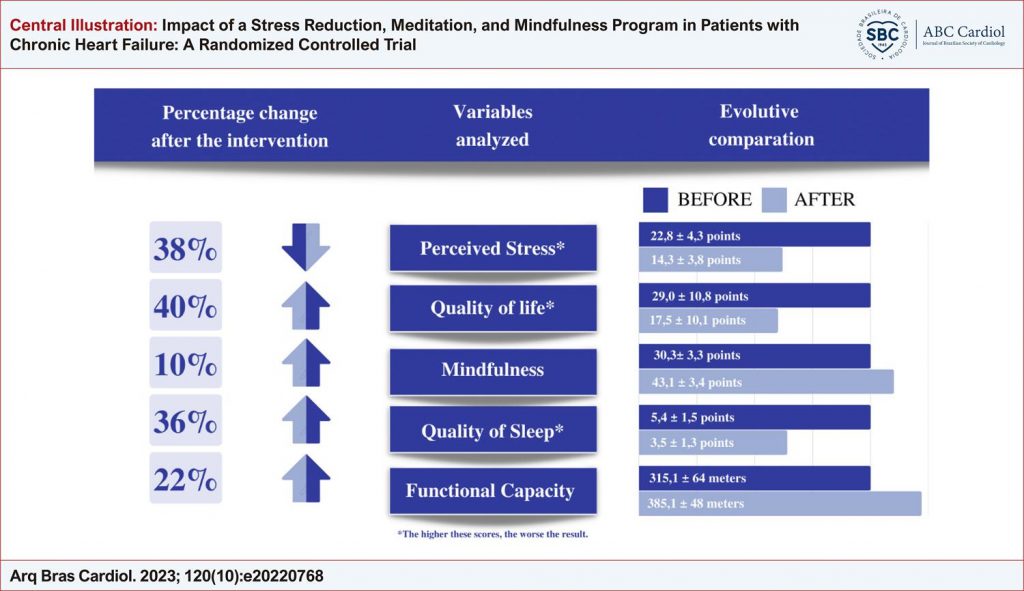Arq. Bras. Cardiol. 2023; 120(10): e20220768
Impact of a Stress Reduction, Meditation, and Mindfulness Program in Patients with Chronic Heart Failure: A Randomized Controlled Trial
This Original Article is referred by the Short Editorial "Stress Reduction, Meditation and Mindfulness Program for Heart Failure Patients: Some Light in the Darkness".
Abstract
Background
Heart Failure is a significant public health problem leading to a high burden of physical and psychological symptoms despite optimized therapy.
Objective
To evaluate primarily the impact of a Stress Reduction, Meditation, and Mindfulness Program on stress reduction of patients with Heart Failure.
Methods
A randomized and controlled clinical trial assessed the effect of a stress reduction program compared to conventional multidisciplinary care in two specialized centers in Brazil. The data collection period took place between April and October 2019. Thirty-eight patients were included and allocated to the intervention or control groups. The intervention took place over 8 weeks. The protocol assessed the scales of perceived stress, depression, quality of life, anxiety, mindfulness, quality of sleep, a 6-minute walk test, and biomarkers analyzed by a blinded team, considering a p-value <0.05 statistically significant.
Results
The intervention resulted in a significant reduction in perceived stress from 22.8 ± 4.3 to 14.3 ± 3.8 points in the perceived stress scale-14 items in the intervention group vs. 23.9 ± 4.3 to 25.8 ± 5.4 in the control group (p-value<0.001). A significant improvement in quality of life (p-value=0.013), mindfulness (p-value=0.041), quality of sleep (p-value<0.001), and the 6-minute walk test (p-value=0.004) was also observed in the group under intervention in comparison with the control.
Conclusion
The Stress Reduction, Meditation, and Mindfulness Program effectively reduced perceived stress and improved clinical outcomes in patients with chronic Heart Failure.
2,108

